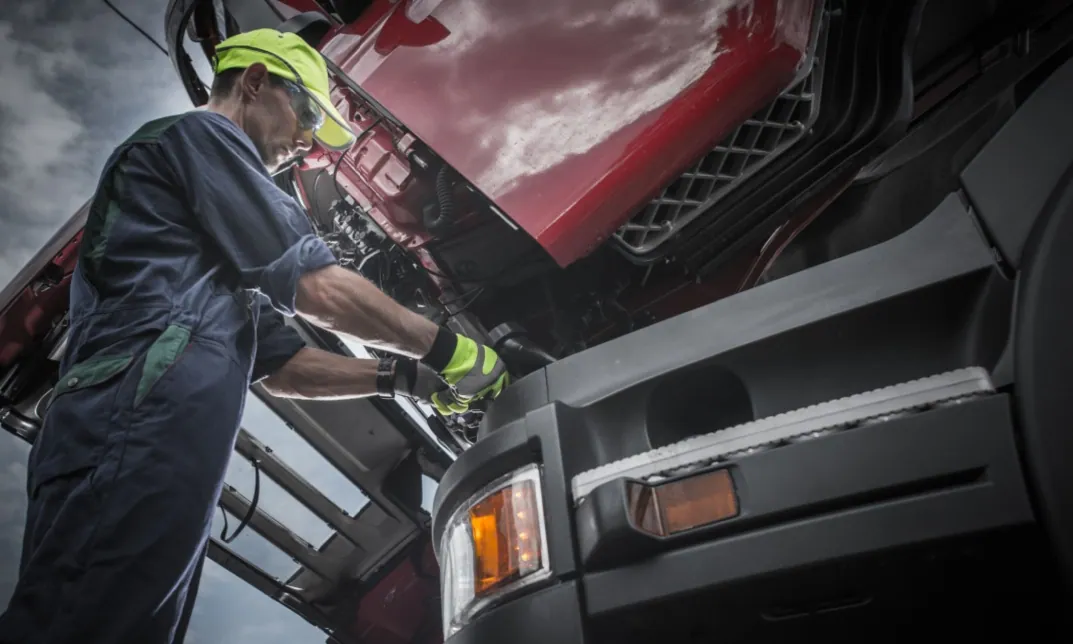The HGV world changes fast every year. Trucks use more sensors, more electronics and more safety systems than ever before. When a truck stops working, the whole delivery plan stops too, so a skilled HGV mechanic always matters. Many companies worry about delays, fuel costs and road safety, so they look for mechanics who know what they are doing and who can work step by step without rushing.
This job suits people who enjoy hands-on work and clear routines. It mixes tools, problem-solving, safety checks and real responsibility. Many people like this career because they can see results right away. Beginners often feel unsure at first, but confidence grows with practice. Anyone with patience can build strong skills in this field.
This guide explains the main skills an HGV mechanic needs. It uses simple sentences and clear examples so beginners can understand the work without removing the real mechanical terms used in the UK transport industry. Everything in this guide connects directly to the jobs done in real workshops, on real fleets, and during real DVSA checks.
What Does an HGV Mechanic Do?
HGV mechanics work on trucks that weigh more than 3.5 tonnes. These trucks use stronger systems than cars and need more advanced care. They run on air brakes, heavy engines, strong gearboxes and big electrical systems like 12/24-volt wiring and CAN-bus networks. Most HGV mechanics follow schedules set by fleet managers and the DVSA, so the work mixes routine checks with fast repairs.
Daily work includes:
- diagnose and repair engine, driveline, electrical, pneumatic and hydraulic problems
- carry out PMIs (preventive maintenance inspections)
- fix faults reported by drivers
- prepare trucks for MOT
- road test trucks
- complete job cards
- take vehicles to ATFs for annual DVSA tests

Engine, Driveline and Power Systems
HGV engines work long hours. Mechanics check injectors, turbos, hoses, belts and sensors. The driveline includes the gearbox, propshaft, differential and axles. Mechanics listen for strange noises, look for leaks and check how parts behave under stress or when the vehicle is loaded.
Air Brakes and Pneumatic Systems
Air brakes use air pressure instead of fluid. Mechanics check air lines, tanks, service brakes, brake chambers and valves. They test pressure and listen for leaks. Air suspension systems work in similar ways, so the skills cross over nicely.
Electrical and Electronic Work
Modern trucks depend heavily on electronics. A single sensor can affect the whole system. Mechanics use scan tools, multimeters and wiring diagrams to read fault codes, test wires, check earth points and confirm if a module works correctly. This part feels confusing at first, but it becomes easier with daily practice.
PMIs and MOT Preparation
PMIs keep trucks legal and safe. The workshop follows a set schedule based on the fleet’s rules. Mechanics check:
- brake wear
- tyres
- steering
- lights
- suspension
- chassis
- emissions systems
Every PMI needs clear records. Workshops must store inspection records for at least 15 months in case the DVSA asks for proof of safety and maintenance.
If you’re interested in how these daily workshop tasks turn into a full career path, the guide “How to Become an HGV Mechanic in the UK Easily” breaks it down clearly.
What Skills Do You Need to Be an HGV Mechanic?
A good mechanic mixes technical skills with safe habits. These skills grow with experience, support and training. Many people start with little knowledge and build up their skills one job at a time. Key skills include:
- understanding systems like air brakes, air suspension and 12/24-volt electrics
- following DVSA rules
- using safe workshop habits like correct torque, tidy work areas and proper checks
Understanding the Main Systems
Mechanics learn each system layer by layer. Trucks look complicated, but most systems follow simple patterns. The more a mechanic sees, the easier each job becomes.
- Chassis and Suspension: The chassis holds the full weight of the truck. Mechanics check rails, springs, airbags and ride height. Any rust, cracks or loose mounts can create serious safety problems and MOT failures.
- Air Braking Systems: Air systems need clean air and the right pressure. Mechanics test pressure build-up, airflow and brake response. Even a small leak changes how the brakes work, so leak checks matter every day.
- Electrical Systems: Trucks use a strong 24-volt electrical system. Mechanics check wires, earth points, connectors and sensors. Exact testing helps avoid unnecessary part changes.
Do You Need Strong Mechanical and Technical Skills?
Yes. HGV mechanics work with large parts, heavy systems and powerful tools. Strong hands-on skills make every task safer and easier.
Key Hands-On Skills
Hands-on skills develop slowly. Every service, every brake change and every fault repair gives a mechanic more confidence.
- Repair and Replace Parts: This includes removing brake drums, fitting wheel bearings, replacing hoses, changing sensors and setting preloads. Mechanics follow verified steps from manufacturers to avoid mistakes.
- Measuring and Checking: Mechanics measure brake thickness, tyre wear, bearing play and air pressure. Numbers matter because they show when a part is safe and when it needs replacing.
- Using Tools Correctly: Mechanics use torque wrenches, pullers, gauges, scan tools and multimeters. Using the right tool prevents damage and saves time. Many apprentices learn tool use by watching senior mechanics and copying their steps.
How Important Are Problem-Solving Skills for HGV Mechanics?
Problem-solving sits at the centre of this job. Trucks show symptoms like warning lights, strange noises, vibration or smoke. Mechanics learn to find the real cause instead of guessing, because guessing leads to wasted time and parts.
Ways Mechanics Solve Problems
A mechanic builds a clear plan instead of rushing. This plan saves time and avoids repeat breakdowns.
- Start Simple: Many faults come from loose pipes, worn hoses, low fluids or dirty sensors. Checking simple things first saves time and prevents bigger delays.
- Test in Steps: Testing in small steps avoids confusion. This steady method also stops unnecessary part changes, which saves money for the fleet and builds trust in the mechanic.
- Reproduce the Problem: Some faults only appear when hot, cold, or under heavy load. Mechanics test the truck under similar conditions to understand what really happens.
- Check After Repairs: A road test confirms the fix. This step stops repeat faults and helps the driver trust the repair.
Do HGV Mechanics Need Good Diagnostic Skills?
Diagnostic skill grows with experience. Trucks rely on sensors and modules, so careful testing matters every day.
Scan Tools
Scan tools show fault codes, sensor data and system information. Mechanics learn what each code means and how to fix the cause behind it.
Live Data
Live data displays values like boost pressure, brake pressure and NOx readings. Reading these numbers helps the mechanic find the real fault instead of replacing random parts.
Multimeters and Oscilloscopes
These tools test voltage, resistance and signal patterns in wires and sensors. Clear readings help the mechanic find where a circuit breaks.
What Practical Skills Help HGV Mechanics Do Their Job?
Practical skills keep workshops safe and efficient. Good habits also prevent repeat faults and help trucks pass MOT tests without stress.
Some core practical skills include:
- brake testing on rollers or road tests
- air leak detection
- wiring repairs
- routing looms neatly
- tightening bolts to correct torque
- servicing wheel hubs and bearings
- writing clear PMI notes
Why Practical Skills Matter
Every practical skill leads to safer trucks and smoother work.
- Safe Brakes: Strong brakes protect drivers and reduce accidents. Brake work must be checked and tested carefully.
- Strong Wiring: Good wiring prevents electrical faults and breakdowns. Clean connectors help sensors send accurate signals to the system.
- Clear Paperwork: Accurate PMI notes protect the fleet during DVSA audits and remind mechanics of past faults so nothing gets missed.
Do HGV Mechanics Need IT or Computer Skills?
Workshops use digital tools every day, and mechanics learn these systems step by step until they feel simple and familiar. These tools help find faults faster, record jobs clearly and follow the right repair steps without confusion. Computers help mechanics read instructions, check diagrams, record work and understand what the truck’s systems are doing during a repair. These tools also make updates easy when new information comes from the manufacturer.
Manufacturer Portals
Mechanics read service steps, diagrams and wiring layouts online, and every file gives simple guidance that explains the repair in clear order. These guides remove guesswork and stop mistakes during busy workshop days.
Diagnostic Software
Many tests are run through software, and the programs guide the mechanic with easy steps that show when a sensor needs a reset or when a module needs attention. This keeps the repair accurate and makes complex electrical work easier to understand.
Digital Job Cards
Workshops use tablets or computers to record repairs, list fitted parts and track remaining work. These notes help the team plan the next steps and show clear records for future checks or DVSA visits.
How Important Is Attention to Detail in HGV Repairs?
Attention to detail keeps trucks safe and stops small faults from growing into serious problems. Mechanics look closely at each part because even small mistakes can cause big trouble on the road or during an MOT.
Torque Settings
Correct torque stops bolts from loosening or snapping, so mechanics check these values carefully and use a torque wrench to keep each part secure and safe.
Brake Setup
Brake settings change how the truck feels on the road, and careful adjustments help the truck stop smoothly while reducing wear on drums, pads and discs.
Chassis Checks
Loose or rusty parts weaken the truck, so early repairs keep the structure strong and prevent bigger problems from appearing later.
Do HGV Mechanics Need Good Communication Skills?
Mechanics talk to drivers, managers, suppliers and other technicians every day, and clear communication keeps the work moving without delays or confusion.
Why Communication Helps
Good communication helps the team fix trucks faster, prevents wrong part orders and gives drivers the confidence to report new issues quickly.
- Explaining Problems: Drivers understand changes better when a mechanic explains the fault in simple words, and this helps them spot signs early on future journeys.
- Ordering Parts: Correct part details save time and prevent delays, so clear messages to suppliers make repairs smoother and quicker.
- Working as a Team: Workshops run better when mechanics share clear updates, and this teamwork helps the whole garage finish jobs on time.
Final Thoughts on the Skills You Need as an HGV Mechanic
An HGV mechanic builds skill through steady practice. The job mixes hands-on work, clear thinking, diagnostics, safety checks and strong habits. It becomes easier over time because each system becomes familiar. Trucks stay complex, but a mechanic who understands PMIs, air brakes, wiring, torque values and DVSA rules can handle almost any job in the workshop.
Anyone who wants strong, simple training can start with the CPD-accredited HGV Mechanic Course from Open Learning Academy. It teaches the basics in a clear, practical way and helps beginners step into the workshop with confidence.
With patience and steady effort, any beginner can grow into a skilled HGV mechanic who helps keep UK trucks safe and moving every day.
FAQs
What is an HGV mechanic?
An HGV mechanic maintains, services and repairs heavy goods vehicles, ensuring they operate safely and meet legal road standards.
How much does an HGV mechanic get paid?
Most HGV mechanics earn £28,000–£45,000 annually, with experienced technicians or shift workers earning more.
What qualifications do you need to be an HGV mechanic?
You typically need a Level 3 Heavy Vehicle Maintenance qualification, apprenticeship training and strong mechanical skills.
What is the highest paid mechanic?
Aircraft mechanics, master technicians and specialist diagnostic engineers tend to earn the highest wages in the industry.
Can a mechanic make 200k a year?
Yes, but rarely—usually through running a successful repair business, contracting, or specialising in high-end or niche automotive fields.




